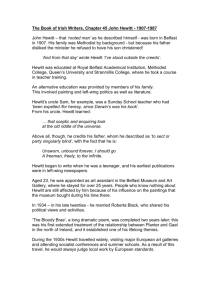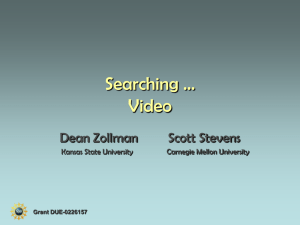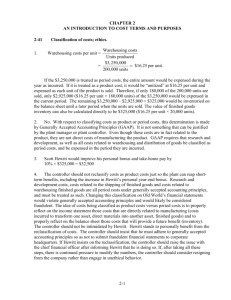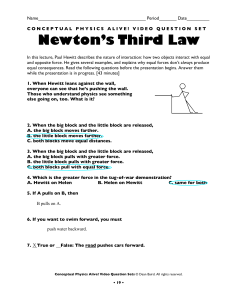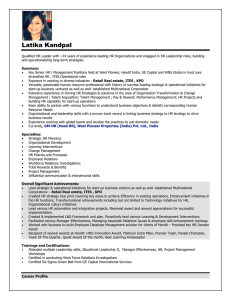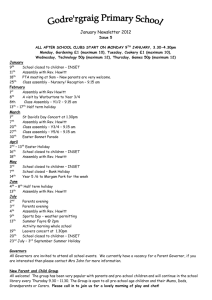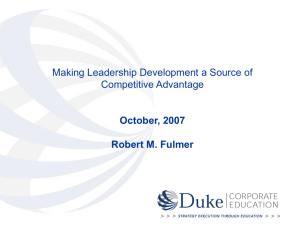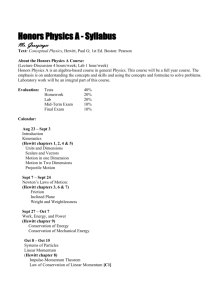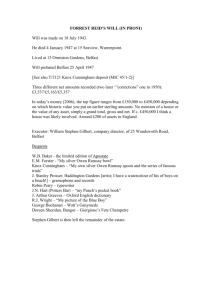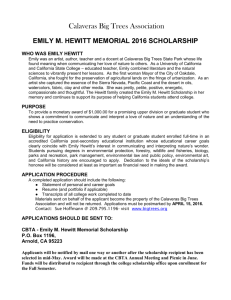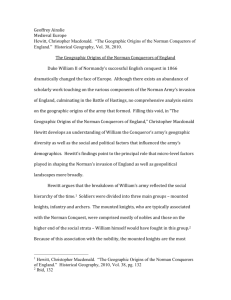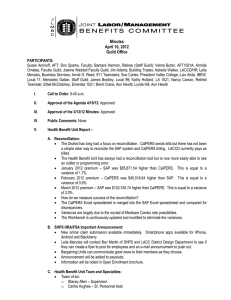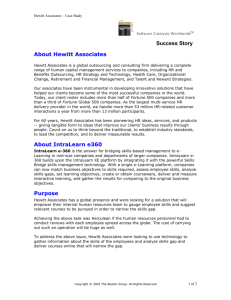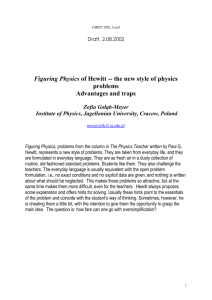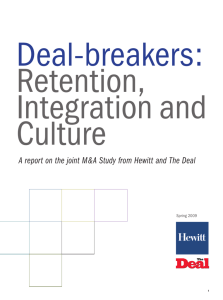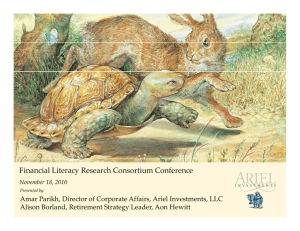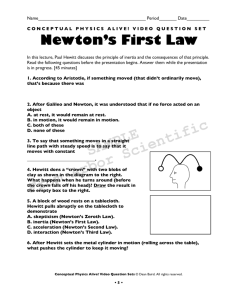As you like it by John Hewitt (1907
advertisement
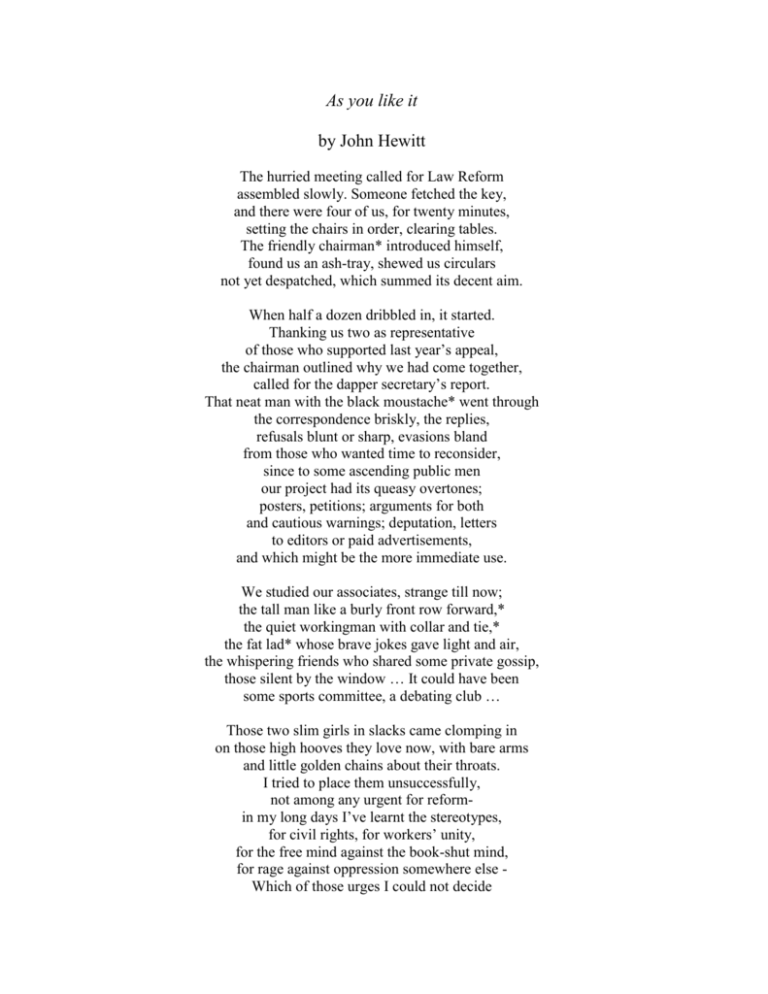
As you like it by John Hewitt The hurried meeting called for Law Reform assembled slowly. Someone fetched the key, and there were four of us, for twenty minutes, setting the chairs in order, clearing tables. The friendly chairman* introduced himself, found us an ash-tray, shewed us circulars not yet despatched, which summed its decent aim. When half a dozen dribbled in, it started. Thanking us two as representative of those who supported last year’s appeal, the chairman outlined why we had come together, called for the dapper secretary’s report. That neat man with the black moustache* went through the correspondence briskly, the replies, refusals blunt or sharp, evasions bland from those who wanted time to reconsider, since to some ascending public men our project had its queasy overtones; posters, petitions; arguments for both and cautious warnings; deputation, letters to editors or paid advertisements, and which might be the more immediate use. We studied our associates, strange till now; the tall man like a burly front row forward,* the quiet workingman with collar and tie,* the fat lad* whose brave jokes gave light and air, the whispering friends who shared some private gossip, those silent by the window … It could have been some sports committee, a debating club … Those two slim girls in slacks came clomping in on those high hooves they love now, with bare arms and little golden chains about their throats. I tried to place them unsuccessfully, not among any urgent for reformin my long days I’ve learnt the stereotypes, for civil rights, for workers’ unity, for the free mind against the book-shut mind, for rage against oppression somewhere else Which of those urges I could not decide impelled these youngsters, till, at last, they spoke with rough-rasped workshop voices-they were lads linking with us against our laggard law which leaves them unpermitted, out of step. I thought instinctive that they posed an image not to our serious purpose, giggling, coy … I have some feeling for the loneliness, for the pathos of the homosexual, friendless among the hugging families, waiting with frustrate hope, for one to love whose destiny’s the same; the furtive posture poised against rebuff, against tabu. Here was no protest powered by indignation. This was play-acting; this was dressing up, hardly amusing, childish, dissonant. Yet, as my thought swerved, suddenly I recalled the great boy-actors of the Bankside Globe I’d read about but scarcely visualised, tripping their maiden-steps to marvellous verse that Shakespeare, Jonson, Webster wrote for them. That dark chap* there could have been Celia, his fair friend*, heart-high sportive Rosalind, boy playing love-sick lass disguised as a boy, with all those sparkling ambiguities; but that dimension’s lost. They have no play Save what they ring from their wry circumstance, though this town still has bloody tragedies. And, it seems like farce, I am unfair; their brittle miming primes my resolution to pin my stubborn pledge to principle. They have their quaint quirks - This is one of mine. 1975 *Jeffrey Dudgeon, Brian Gilmore, Bailie Dalzell, John O’Neill?, Richard Kennedy, Billy Crothers, and John Lyttle respectively. ‘John Hewitt (1907-1987) wrote a poem about an inaugural meeting that he and his wife Roberta had attended at Queen’s University Student’s Union in July 1975. The dapper secretary was a Middletown student Brian Gilmore involved in a difficult law reform campaign that necessitated a successful 1975-1981 prosecution by Jeff Dudgeon of the government in the European Human Rights Court in Strasbourg before eventual law reform in 1982. The poem was published in his aptly entitled “Time Enough” collection. Over 4,000 poems were written by John Hewitt, who was a leading personality in the Ulster Arts Community. The John Hewitt International Summer School is held each summer in Armagh.’ References: Time Enough: Poems New and Revised (Belfast, 1976); The collected poems of John Hewitt (Belfast, c 1991). http://library.ulster.ac.uk/craine/hewitt/life.htm The Guardian 28-Feb-1976; BBC1 Spotlight 2-Nov-1976; Belfast Newsletter 23-Oct1981 pp.1-2; PRONI D3762/2/4/1-8 (Strasbourg Case Papers).


